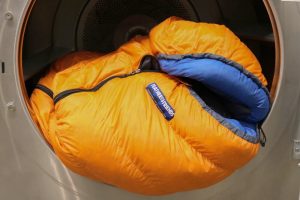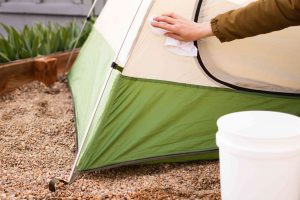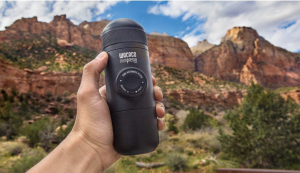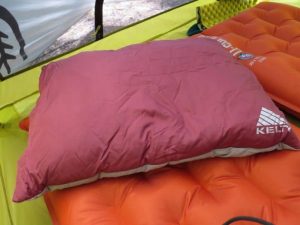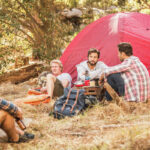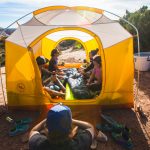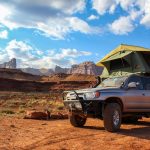Winter camping is a popular activity for many people. It’s not as easy as it might sound, though. There are some things you need to know before going out and trying to camp in the winter: what gear you will need, how to set up your tent correctly, and other tips that will make your experience much more enjoyable. In this blog post, we’ll go over all of these topics and answer any questions that you may have about winter camping so that you can be fully prepared before heading out into the wilderness.

Table of Contents
Plan Ahead
Winter camping is something that takes a lot of planning. You need to make sure you have the right gear, but also know what kind of weather conditions are in your area and prepare accordingly. For example, if you are camping in the Rocky Mountains during wintertime, there’s a good chance it could be snowing. You will need to know if your gear can handle that kind of weather and what kinds of things you should bring with you just in case.
- Make a Plan: When planning out what kind of things you want to bring with you, the most important thing to consider is how far away your campsite is. If it’s nearby, then it might be easier for you to go back and forth while packing up camp or getting more supplies. However, if your campsite isn’t that close by (like in some national parks) then this may not be an option. You should pack extra water, food, and anything else you might need in case of the weather changes unexpectedly.
- Stay hydrated and eat lots of calories: This is very important. If you are at a high altitude, it’s easy to get dehydrated quickly so make sure you bring extra water with you and drink frequently. Also, try not to eat too much before going out on your trip because heavier foods will weigh you down more than lighter ones like trail mix or jerky.
- Gear Up: Make sure you have the right gear. While you might think that winter camping isn’t much different than standard camping, it’s actually a lot more difficult. For example, if there is snow on the ground while you are sleeping at night then your tent will become wet and won’t insulate as well against the cold air outside. Normally this wouldn’t be an issue in summer since everything would be dry again by the morning, but winter camping can pose some different challenges.
- Prevent cold injuries: Frostbite and hypothermia are always huge risks when you are camping. It’s important to keep your body temperature regulated so that you don’t get too cold at night while sleeping or run the risk of getting sick. There are several things you can do like wearing layers, staying dry, and making sure everything is zipped tight on your tent (especially around the zipper).
- Pack Extra: Bring extra food and supplies just in case something goes wrong or there’s an emergency situation where you need to wait out the weather. Since you may not be able to leave your campsite without putting yourself in danger, it’s good to have extra supplies just in case something happens and you need more time than expected for help to arrive or conditions become too harsh where you are camping.

Gear Checklist Essentials
- Tent (make sure you use a winter tent and it is fully waterproof)
- Sleeping bag rated for the weather conditions
- Waterproof matches, stove, and lighter fluid
- Extra clothes such as socks, hats, gloves/mittens, and scarf
- Food that doesn’t need to be cooked (if possible)
- First Aid Kit with extra supplies for injuries
- Avalanche Safety Equipment (beacon, probe, and shovel)
- Compass, whistle, flashlight/headlamp
- Thermos for hot water
- Extra fuel for your stove (if needed)
- Winter Sunglasses
- Extra batteries for any of your electronics like the GPS on your phone or camera.
- Gaiters to keep snow out of your boots
- Snow shovel for digging a snow shelter if necessary

Food and Water
It’s important to keep your body hydrated and fed when you are winter camping. Drinking extra water will help prevent dehydration from the cold air, but it’s also a good idea to bring food that is high in calories like granola bars or trail mix with nuts or chocolate chips. You can eat these before going out on your trip or while you are waiting for help to arrive if necessary.
If you are a coffee lover, then winter camping is the perfect time to bring your French Press! It’s easy enough to sprinkle some snow on top of it and have hot coffee in just a few minutes.
You might also want to consider bringing instant noodle soup or tea bags with you as well if that’s what you enjoy.

Clothes and Shelter
When camping in winter, make sure you are wearing layers to keep yourself warm. You should have a base layer made of a wicking material like polyester or merino wool that will absorb moisture and draw it away from your skin so that you don’t get too cold while outside in below-freezing temperatures all day long. Then choose an insulating layer like fleece or down so you stay warm. Finally, top it all off with a shell made of waterproof material to keep out the rain and snow.
It’s important to make sure you stay dry and warm when you are winter camping. Keep your clothes clean, zipped up on the tent (especially around the zipper), and avoid getting too close to any fire or flame that could melt snow onto it or singe a hole in them. If there is heavy rain where you are going, then you might want to consider bringing a tarp for your tent and extra clothes just in case.
Note: Winter camping can be more difficult than standard camping so it’s important that you come prepared with the right gear. Winter camping increases the risk for frostbite and hypothermia which are serious medical conditions that can kill you so it’s important to be prepared and stay safe.

Winter backpacking Tips
If you are planning on going out for a day hike or overnight camping trip, make sure you know what the weather conditions will be like and bring gear accordingly. Always tell someone where you’re going and when they should expect to hear from you next so that if there is an emergency then
- Keeping warm: It’s important not to let yourself get too cold because once your body starts shivering, it will be hard to stop. The best way is by keeping as much of your body covered as possible and staying close to a heat source like a fire.
- Keeping dry: If possible, bring an extra pair of socks and pants just in case they get wet from rain or snow. Try to avoid getting your sleeping bag wet because if it’s damp then the heat won’t be able to escape and the bag will take a long time to dry.
- Keeping safe: It’s important that you check in with your family, friends, or campground volunteers periodically so they know where you are and what sort of weather conditions to expect when looking for you if an emergency happens. This is also good practice because it helps search and rescue teams find people in need more quickly.

How to Set-up Your Tent on Snow
- Pack down the snow to create a flat surface: You’ll want to start by packing down the snow underneath your tent so that it’s flat and there is not a huge mound of snow that will prevent your tent from being set up.
- Make sure the tent is level: The next step is to make sure your tent is perfectly level before putting it up so that there isn’t any risk of anything getting inside and wet from rain and snow seeping in through an angle. You can do this by digging out the snow underneath the tent into a flat surface.
- Make sure the zipper is facing away from the wind: Make sure that you orient your tent so that the zipper is on its long end facing away from the wind. This way, snow won’t be blown into your tent.
- Build a wall: You can also build a wall around your tent made of snow to block the wind and prevent it from blowing away.
- Put a tarp under your tent: If you don’t want to pack the snow yourself, then laying out an old tarp underneath your tent works just as well.
- Make sure the ground is clear: You’ll want to clear off any branches and rocks that might be in the way before setting up your tent because it can ruin your tent or cause injury if you step on them.
- Secure stakes: The final step is to secure all of your stakes so they don’t come out in high winds which could blow away everything with it. To do this, you’ll want to push them into the snow about an inch or two.

What To Avoid With Winter Camping: Health and Safety Tips
With winter camping, it’s important to be prepared for anything that could go wrong because the consequences are just so much worse. It’s best to bring extra warm clothes, food, and gear just in case something happens that you weren’t expecting so that you don’t get stuck somewhere cold and exposed to the elements.
- Avoid getting lost: It’s also important to make sure you know where you are going and how to get there because the weather conditions will make it very easy for you to lose your way. You’ll want to bring a map and compass as well as a GPS device to help you out.
- Avoid fires: Don’t start any campfires because the weather conditions will make it much more difficult to ensure that they stay contained and don’t get out of control. You’ll also need a lot more kindling and fuel in order to make it work, which you might not have.
- Don’t burn any trash: You’ll also want to make sure that you don’t start a fire to burn any trash because the smoke will be much worse and harder to contain.

- Avoid Long Hikes: You’ll also want to avoid going on long hikes or walks because you’ll be tired and exhausted from the cold temperatures, which makes it very easy to slip on ice or snow and get injured.
- Avoid swimming or getting too wet: You should avoid swimming in any lakes or rivers because you could get hypothermia and that would be dangerous.
- Avoid driving: You’ll also want to avoid traveling long distances because the weather conditions are too much for any car to handle and you could get stuck somewhere unsafe.
- Be careful around your campsite: You’ll also want to be very careful around your campsite and make sure you avoid any risks of falling or tripping. This includes making sure there aren’t any branches hanging down that could fall on you as well as making sure that the ground is clear of any debris.
Make sure you’re prepared for any sort of emergency: It’s always important to make sure that your campsite is completely ready in case of an emergency. You should have a first aid kit, blankets, and warm clothes just in case something happens that you weren’t expecting so that you can remain safe and secure. Make sure you check the weather conditions: You should also make sure that you know what the weather conditions are like before going any further. This means checking that there aren’t any severe weather warnings as well as making sure it won’t rain or snow so you can prevent any sort of problems.

Avalanche Safety Equipment
It’s also important to make sure you have any avalanche safety equipment when winter camping in very high-risk areas. This includes:
- Satellite Messenger: A satellite messenger can help you out with communication if something goes wrong and you need to call for help.
- Ice Axe: An ice ax can help you out when climbing up steep slopes in order to avoid slipping.
- Transceiver: A transceiver is another essential piece of safety equipment so that you can signal for help.
- Shovel: Shovels are also important when winter camping in order to make sure you can dig yourself out of any dangerous situations.
- Helmet: You’ll also want to make sure that you have a helmet when winter camping in order to protect yourself from any falling debris.
- Snow Probes: A pair of snow probes can also help you navigate through any snow much easier
- Beacon: A beacon can help you find any victims that have been involved in an avalanche.
- Carabiners: Carabiners are another safety feature that can allow you to safely attach ropes and other equipment.
Note: Make sure you know where the nearest shelter is: It’s also important to know where the nearest shelter or cabin is in case you need to seek refuge from the weather. This will also help rescuers find you if they’re looking for your campsite and don’t know where to go.

General Tips for Winter Camping
You’ll also want to make sure you follow these general tips when winter camping in order to ensure that you remain safe and secure:
- Add even more ground insulation: You’ll also want to make sure that you have even more insulation between yourself and the ground when winter camping. This means adding another foam pad or even a mattress to the ground.
- Stay visible at all times: It’s also important to stay as visible as possible whenever you’re winter camping so that rescue teams can find you if something goes wrong. This means wearing bright, reflective clothes or even adding some extra lights at your campsite in case it gets dark.
- Keep dry: You’ll also want to make sure that you keep as dry as possible whenever you’re winter camping. This means staying out of the rain, making sure you have a dry place to sleep at night, and keeping your clothes clean.
- Keep an open mind: It’s also important to make sure you keep an open mind whenever winter camping and be prepared for anything that might happen. Be ready to improvise with whatever equipment you have and make the best of any situation.
- Exercise before bed: You’ll also want to make sure that you exercise before bed whenever winter camping. This will keep your body warm and help it prevent any sort of frostbite.
- Avoid alcohol: You should also avoid drinking too much alcohol whenever you’re winter camping as this can cause hypothermia and other problems that can make winter camping a lot more dangerous.
- Start out with your batteries fully charged: You should also make sure that your batteries are fully charged when you’re winter camping so you don’t have any problems with equipment. Include a backup flashlight: A backup flashlight can also make winter camping a lot easier since you’ll always have an extra light source with you.
- Stay on main roads: It’s also important to make sure you stay on main roads when winter camping in order to avoid getting stuck somewhere where help might not be able to find you.

FAQ
Q: What is winter camping?
A: Winter camping refers to spending time in the wild during cold weather. People often use this as an opportunity to get out and enjoy nature while also experiencing something new and exciting. This can be a great experience that allows people of all skill levels to go out into the wilderness but it’s important that you remain safe while you’re doing it.
Q: How cold is too cold for winter camping?
A: It’s important to know that there’s no universal answer to this question since the temperature that you should avoid winter camping in will depend on your skill level and what equipment you have. You should also keep in mind that the temperature you experience will depend on a variety of factors including wind speed, humidity levels, and even elevation.
Q: What are the advantages of winter camping?
A: There are a lot of different reasons people enjoy winter camping. Some people love the challenge of doing something in conditions that might be uncomfortable while others simply enjoy the peace and quiet they get when winter camping. This allows people to escape from their everyday lives and enjoy a little time for themselves.
Q: How do I prepare for winter camping?
A: Preparing to go winter camping is very important and you’ll want to make sure that you do it right. The first thing you should do is decide where you’re going to go. It’s very important that you choose a place where there are other people in case something goes wrong so it’s best not to head out too far. The next thing you should do is make sure that you have the proper equipment for winter camping including a tent, sleeping bag, and a stove. You should also make sure that you have plenty of food and water before heading out on your trip.
Q. What is a satellite messenger?
A. A satellite messenger can help you out with communication if something goes wrong and you need to call for help.
Q. What are the different kinds of shelters that I can stay in when winter camping?
A. There are cabins, lodges, and shelters that you can stay in when winter camping.
Q. Why should I camp in the summer if I want to go winter camping?
A. You shouldn’t try going winter camping without proper equipment and experience. You should also camp in the summer if you want to go winter camping so that you can get used to it before trying anything too dangerous.
Q. What equipment should I bring on a winter camping trip?
A. Some of the most important pieces of equipment to bring with you on a winter camping trip include emergency blankets, first aid kits, shelter building supplies like rope and tarpaulin.
Q. What are the most important things to remember when winter camping?
A. Some of the most important things to remember when winter camping include knowing where the nearest shelter is, never leaving your car if you get stuck in the snow, and building a fire.
Q. What is hypothermia?
A. Hypothermia is a dangerous drop in body temperature that can be fatal if you’re not careful.
Q. What are some of the dangers of winter camping?
A. Some of the dangers of winter camping include wildlife, cold weather, and hypothermia.
Q. What can I do to prevent hypothermia?
A. You can prevent hypothermia by staying dry, keeping your body warm, and avoiding alcohol.
Q. What should I wear while winter camping?
A. Some of the best clothes for winter camping include insulated boots that are waterproof or water-resistant along with a hat you can pull down over your ears.
Q. What should I do if something goes wrong?
A. If something goes wrong, you should stay where you are and wait to be rescued by help instead of trying to rescue yourself. You can also send a distress signal with a satellite messenger or cell phone in order to let people know your location so they can come to find you.
Q. What is a good rule of thumb when backpacking?
A. A good rule of thumb when backpacking is to keep track of how much you’ve been carrying and then take out a little bit at a time.
Q. What do I need to know about avalanche beacons?
A. An avalanche beacon can help you find any victims that have been involved in an avalanche.
Q. What kind of equipment do I need to winter camp?
A. You’ll need a GPS, satellite messenger, and backup flashlight in order to be prepared for anything that might happen while



